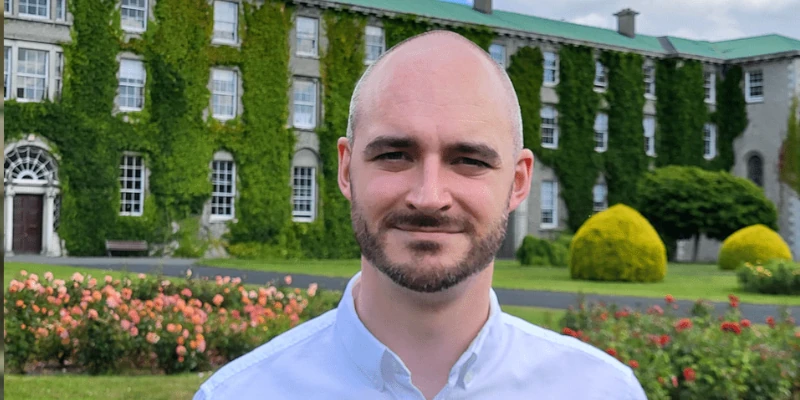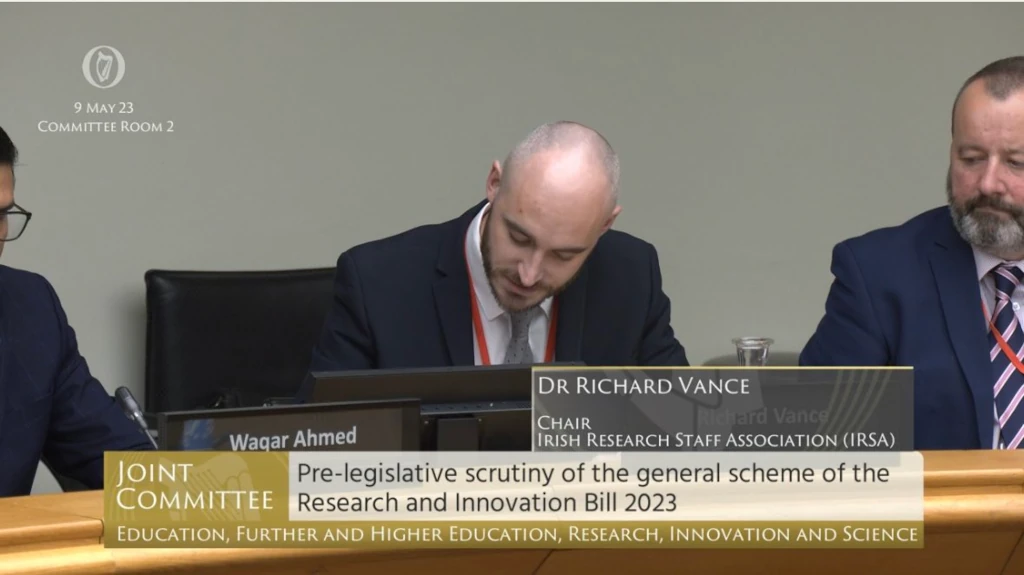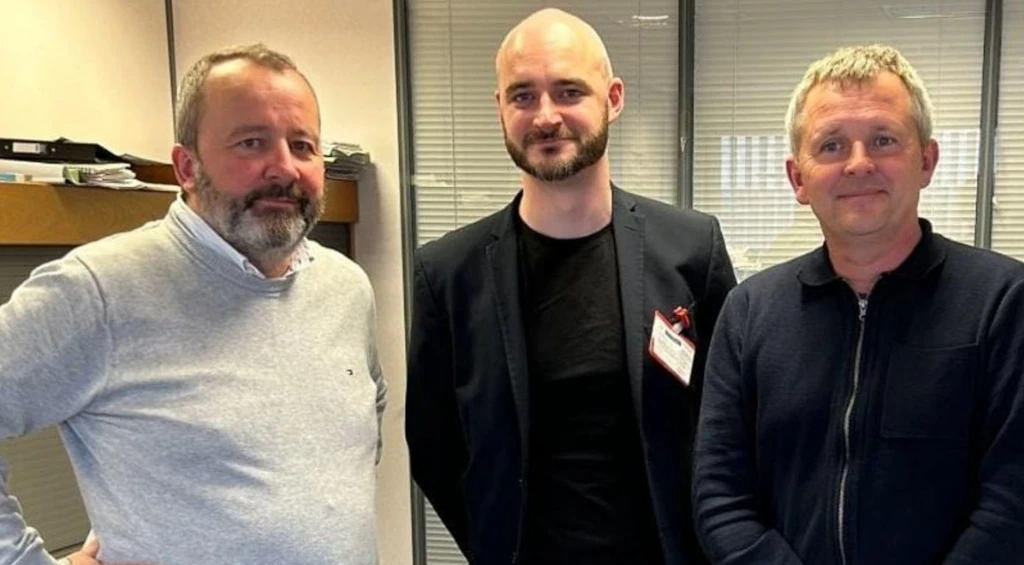‘We Love What We Do — and That’s Our Strength’: Dr. Richard Lombard-Vance on Research, Policy, and Precarity

Dr. Richard Vance is a psychologist and assistant professor at Dublin City University. With a background in cognitive and lifespan psychology, he focuses on ageing, cognitive function, and wellbeing—especially among older adults. He also serves as Chair of the Irish Research Staff Association (IRSA), where he’s worked to improve conditions for researchers across the country together with Dr Rosarii Griffin (Chair UCCRSA) who is also the Secretary of IrishRSA and member of the Board.
This interview has been shortened and lightly edited for clarity.
Q1, Tell us a bit about your background and academic work.
I’m a lifespan psychologist based at DCU, with a focus on quality of life and wellbeing and how they change over time, especially in older adults. I’ve looked at the impact of vascular disease on cognition, digital health interventions, and how people adapt as they age. I’ve been in DCU for nearly two years - before that, I moved around a lot.
 Photo: Giving evidence to the Oireachtas Committee on the Research and Innovation Bill.
Photo: Giving evidence to the Oireachtas Committee on the Research and Innovation Bill.
Q2, How did you get involved with the Irish Research Staff Association?
It started when I joined the local RSA in Maynooth. At the time, I was thinking: we really need to do something to support postdocs. Then COVID hit, which made everything even harder for researchers on short-term contracts. I ended up being delegated to represent Maynooth at IRSA. It all unfolded quite naturally from there.
Q3, What kind of work does IRSA actually do?
We provide a platform for researchers to connect - locally, nationally, and internationally.
A big part of our role is engaging with policy: we look at evidence and best practice and at what’s happening elsewhere in Europe, commission our own research, and submit recommendations to Government. For example, we contributed to the Oireachtas Committee’s Funding the Future report and regularly respond to public consultations.
The IrishRSA hosts and supports events for researchers nationally, and we engage a lot with Government, opposition, and union partners and internationally with ICoRSA (International Consortium of Research Staff Associations).
We’re also involved in initiatives like CoARA (Coalition for the Advancement of Research Assessment), which pushes for fairer and more holistic ways to evaluate researchers - beyond just metrics.
Q4, What would you consider some of your key achievements as Chair?
I wouldn’t call them my achievements - they were collective efforts. But we’ve had some important wins.
 Photo: Frank Jones (IFUT), Richard Lombard-Vance (IRSA), Richard Boyd-Barrett TD, 2024
Photo: Frank Jones (IFUT), Richard Lombard-Vance (IRSA), Richard Boyd-Barrett TD, 2024
Giving evidence at the Oireachtas was a standout. So was the report we commissioned, Reducing the Precarity of Academic Research Careers, which drew on international expertise to offer new policy options for research careers.
It can be very difficult to achieve policy change, but when I look at the most recent Programme for Government, I recognise ideas we’d been pushing for. It showed our long-term advocacy was being heard - even if in diluted form. That comes from considerable engagement with both Government and opposition TDs and Senators.
Q5, What do you see as the biggest challenge facing researchers right now?
Precarity - without a doubt! Whether you’re a postdoc, a research assistant, or a contract lecturer, instability is baked into the system.
It’s hard to build a life or do your best work when you’re constantly moving, reapplying, or unsure of your future.
It particularly affects people with families, people with disabilities, people in niche areas of research. And it affects women more acutely - which can be exacerbated by the gender pay gap.
We try to tackle this through everything we do - careers fairs, policy engagement, international collaboration. But there’s still a long way to go.
Q6, Any advice for local RSAs around Ireland?
Keep doing what you're doing! The number of local Higher Education Researcher Staff Associations (RSAs) are rising fast and they do amazing work. We hope to publish an e-newsletter shortly to highlight their work.
I’d love to see even more collaboration across institutions - sharing surveys, events, best practice. And if IRSA can do some of the heavy lifting, we’re here for that too.
Q7, Final thoughts?
Most of us love what we do - and that can be both our strength and our vulnerability. It’s easy to feel guilty when you’re struggling in a precarious system, but the root of instability is structural. That’s why coming together matters because we can’t fix this alone! As such, the IrishRSA Board comprises of heads of RSA’s from different Higher Education Institutions iincluding my colleague, Dr Rosarii Griffin (Chair of UCCRSA) who is also Secretary and board member of IrishRSA. We work with Chairs from other HEI’s to achieve a common goal - fairness for Researchers within the higher education landscape. We also collaborate twith IFUT to achieve this common goal. Our shared vision is our strength.
UCC Research Staff Association
Contact us
C/O Hydraulics and Maritime Research Centre, Pouladuff Rd, Togher (UCC Internal)
